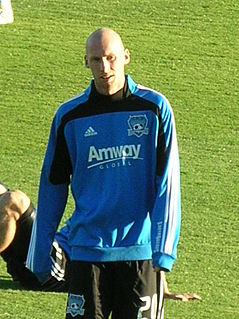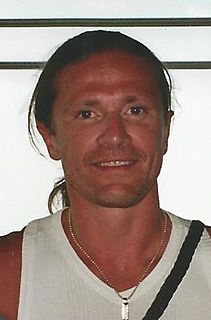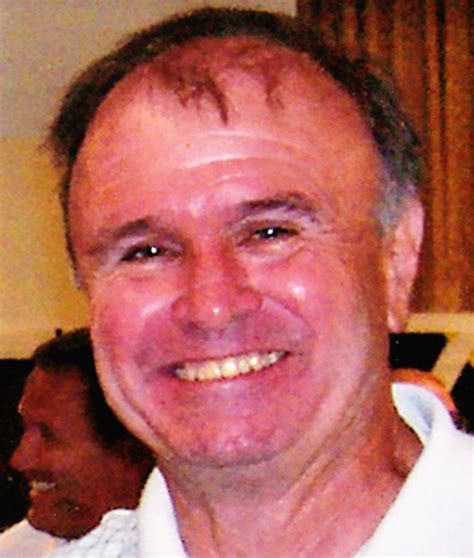A Quote by Tim Ward
Even without his robes an arahant is recognized simply by the effect his metta has in a crowd.
Related Quotes
The simplest Surrealist act consists of dashing down the street, pistol in hand, and firing blindly, as fast as you can pull the trigger, into the crowd. Anyone who, at least once in his life, has not dreamed of thus putting an end to the petty system of debasement and cretinization in effect has a well-defined place in that crowd with his belly at barrel-level.
In a gesture to moderate Republicans, Reagan put Bush on his '80 ticket, and Bush recognized that the Reagan crowd was rapidly becoming an overwhelming majority in the party. So he adjusted his views, served Reagan loyally and spent much of his vice presidency using his stature to convince conservative leaders they could trust him.
He was a foe without hate; a friend without treachery; a soldier without cruelty; a victor without oppression, and a victim without murmuring. He was a public officer without vices; a private citizen without wrong; a neighbor without reproach; a Christian without hypocrisy, and a man without guile. He was a Caesar, without his ambition; Frederick, without his tyranny; Napoleon, without his selfishness, and Washington, without his reward.
Nothing is so insufferable to man as to be completely at rest, without passions, without business, without diversion, without study. He then feels his nothingness, his forlornness, his insufficiency, his dependence, his weakness, his emptiness. There will immediately arise from the depth of his heart weariness, gloom, sadness, fretfulness, vexation, despair.
The pastoral labours of the archbishop of Constantinople provoked and gradually united against him two sorts of enemies; the aspiring clergy, who envied his success, and the obstinate sinners, who were offended by his reproofs. When Chrysostom thundered from the pulpit of St. Sophia against the degeneracy of the Christians, his shafts were spent among the crowd, without wounding or even marking the character of any individual.
God was happy without humans before they were made; he would have continued happy had he simply destroyed them after they had sinned; but as it is he has set his love upon particular sinners, and this means that, by his own free voluntary choice, he will not know perfect and unmixed happiness again till he has brought every one of them to heaven. He has in effect resolved that henceforth for all eternity his happiness shall be conditional upon ours.
He that compares what he has done with what he has left undone, will feel the effect which must always follow the comparison of imagination with reality; he will look with contempt on his own unimportance, and wonder to what purpose he came into the world; he will repine that he shall leave behind him no evidence of his having been, that he has added nothing to the system of life, but has glided from youth to age among the crowd, without any effort for distinction.
The master in the art of living makes little distinction between his work and his play, his labor and his leisure, his mind and his body, his information and his recreation, his love and his religion. He hardly knows which is which. He simply pursues his vision of excellence at whatever he does, leaving others to decide whether he is working or playing. To him he's always doing both.
When a man is stimulated by his own thoughts, full of desire and dwelling on what is attractive, his craving increases even more. He is making the fetter even stronger. But he who takes pleasure in stilling his thoughts, practising the contemplation of what is repulsive, and remaining recollected, now he will make an end of craving, he will snap the bonds of Mara. His aim is accomplished, he is without fear, rid of craving and without stain. He has removed the arrows of changing existence. This is his last body.
Let's note, that in what I consider the most disgraceful performance abroad by an American official in my lifetime - something not exampled since Jane Fonda sat on the anti-aircraft gun in Hanoi to be photographed - Mr. McDermott said in effect, not in effect, he said it, we should take Saddam Hussein at his word and not take the President at his word. He said the United States is simply trying to provoke. I mean, why Saddam Hussein doesn't pay commercial time for that advertisement for his policy, I do not know.
The young man who addresses himself in stern earnest to organizing his life-his habits, his associations, his reading, his study, his work-stands far more chance of rising to a position affording him opportunity to exercise his organizing abilities than the fellow who dawdles along without chart or compass, without plan or purpose, without self-improvement and self-discipline.







































